Interview with Viktor Shafranskyi, General Manager, IPSEN Ukraine
Ipsen has showed some very positive results worldwide in 2010 and so far this year, specifically in non-Western European markets that grew by 12% in 2010. How have the Ukrainian…
Address: 36 Pushkinskaya street, O1004, Kiev,Ukraine
Tel: 380445026529
Ipsen is a global specialty-driven pharmaceutical company with total sales exceeding €1.1 billion in 2010. Ipsen’s ambition is to become a leader in specialty healthcare solutions for targeted debilitating diseases. Its development strategy is supported by four franchises: neurology / Dysport®, endocrinology / Somatuline®, uro-oncology / Decapeptyl® and hemophilia. Moreover, the Group has an active policy of partnerships. R&D is focused on innovative and differentiated technological patient-driven platforms, peptides and toxins. In 2010, R&D expenditure totaled more than €220 million, above 20% of Group sales. The Group has total worldwide staff of close to 4,500 employees.
Ipsen started its activities in Ukraine 20 years ago, with the promotion of a group of legacy products, the majority of which were dedicated to the treatment of gastrointestinal diseases. A couple of years later, Ipsen introduced its innovative franchise, whose three main therapeutic areas are in oncology, endocrinology, and for the treatment of neuro-muscular disorders. For the moment, the company’s strategic focus is to expand its innovative franchise and to push these medicines forward into the market.
Over the past seven years, the range of strategic products in Ipsen’s Ukraine portfolio has more than doubled. At the beginning of 2004, about 30% of sales came from the innovative franchise, whereas by the end of this year, around 60% of sales is expected to be generated by innovative medicines.
In both its targeted therapeutic areas and primary care, Ipsen has a diversified portfolio of leading drugs.
The Group’s product portfolio includes pharmaceutical products marketed around the world to specialists working in its targeted therapeutic areas (oncology, endocrinology, neurology, hematology), which are its primary areas of development. The Group also markets products in other therapeutic areas in which it boasts longstanding expertise (gastroenterology, cardiovascular and cognitive disorders). To a large extent, these are composed of primary care.
Ipsen has showed some very positive results worldwide in 2010 and so far this year, specifically in non-Western European markets that grew by 12% in 2010. How have the Ukrainian…
Dr. Natalya Gudz, head of the State Service of Ukraine on Medicines and Drugs Control (SMDC), provides her vision for the development of Ukraine’s key regulatory authority and the win-win…
Denis Shevchenko, founder of the NGO and charitable foundation PharmVarta, provides insights into the main initiatives of this independent, non-profit organization that has freely supplied Ukrainian patients with more than…
Alexander Markus, chairman of the board of the recently set up German-Ukrainian Chamber of Industry and Commerce, provides insights into the new dynamics driving the growth of Ukraine’s foreign trade…
Dr. Volodymyr Redko, executive director of Ukraine’s Association of Pharmaceutical Research and Development (APRaD), which gathers together 15 international R&D-driven companies, provides insights into the perspective of international innovators vis-à-vis…
What was the market need that spawned the creation of AIPM in 2009 considering that there were already other trade associations in Ukraine that were representing the interests of international…
Lekhim group was one of the pioneers for establishing a national pharmaceutical industry in 1992. This year you will be celebrating 20th anniversary. Would you start by providing us with…
As the first Ukrainian pharmaceutical company backed by foreign capital, explain to us how the idea of creating “Sperco Ukraine” as a joint-venture with UCRAFARMA emerged? The idea to create…
As a leader responsible for heading Roche’s operations since its establishment of an LLC in Ukraine in 2009, what do you consider have been the main achievements of the company?…
Nobel Pharma has quite a history in the CIS region as this region is becoming increasingly important for the company. What is the company’s story in Ukraine? Nobel Pharma Ukraine…
Let us start with the history of InterChem which is quite unique and started as a chemical company with a very small group from the National Academy of Sciences. Please…
It has been almost a decade since Mili Healthcare began its operations in Ukraine today becoming one of the top 20 leading foreign companies in the local industry. What were…
What was the vision behind the creation of APRaD back in 2007 and what was lacking in the market at that time that called for such an association? APRaD originated…

See our Cookie Privacy Policy Here